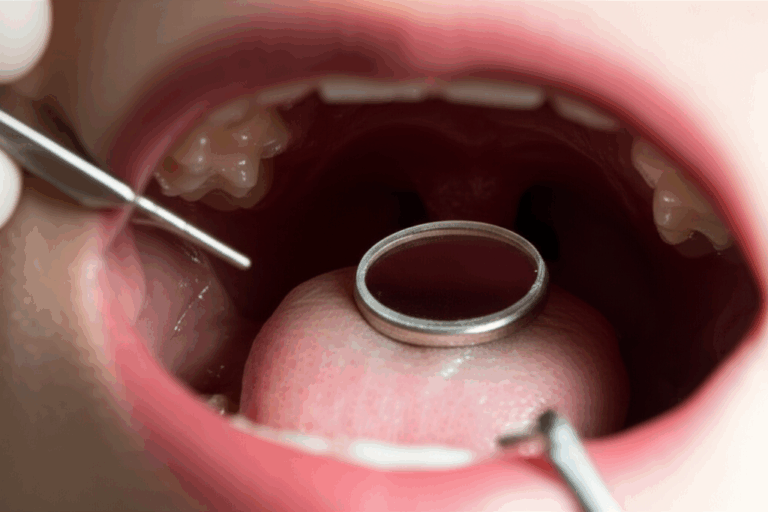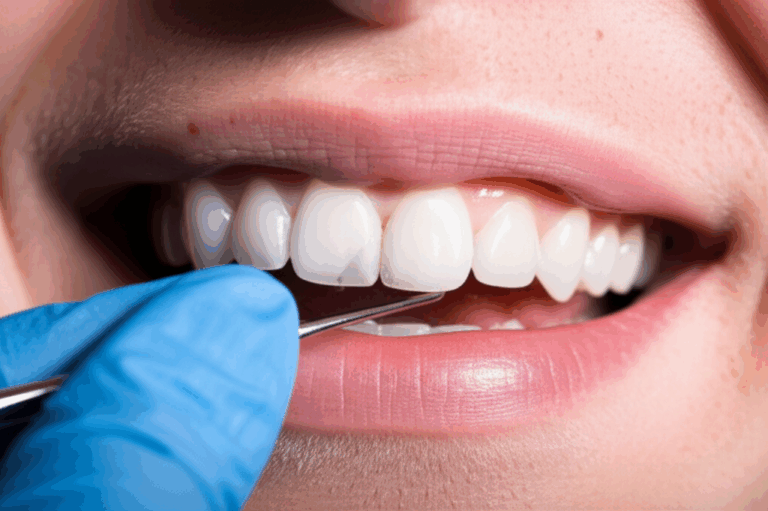
How to Pick the Right Dentist: Your Ultimate Guide to Quality Oral Care
Have you ever worried about finding a new dentist? Maybe you moved to a new area, or maybe it’s been a while since you last went. It can feel stressful to start over. You’re not the only one who feels this way. There are so many choices, insurance rules, and online opinions that picking the right dentist can be confusing.
But really, this isn’t only about who cleans your teeth. It’s about finding someone you trust to take care of your mouth for a long time. Let me walk you through what really matters, so you feel sure and relaxed as you choose.
In This Article
- Define Your Dental Needs and Priorities
- Smart Strategies for Finding Potential Dentists
- Key Factors to Evaluate in a Prospective Dentist
- Essential Questions to Ask During Your Initial Consultation
- Making Your Final Decision & Avoiding Common Mistakes
- Your Healthy Takeaway: How to Start Building a Lasting Smile
Step 1: Define Your Dental Needs and Priorities
First, think about what you really need. Not every dentist and office is the same. Before you start calling or searching, take a minute to decide what’s most important for you.
Figuring Out What You Need
Do you just need a regular check-up, or is there a special problem you want taken care of? Does your child need their first visit, or are you hoping to change how your smile looks? Dentists focus on different things:
- General Dentist: For check-ups, cleanings, and simple fixes.
- Pediatric Dentist: Works with kids’ teeth. Their offices are usually fun and friendly.
- Orthodontist: Deals with braces, clear aligners, and fixing how your teeth fit together.
- Cosmetic Dentist: Good for teeth whitening or improving your smile’s look.
- Other Specialists: Endodontists (root canals), periodontists (gums), oral surgeons, prosthodontists, TMJ or sleep help.
If you get nervous about the dentist or get scared of pain, look for places that offer sedation dentistry or promise to be gentle. If you need implants or bigger jobs, make sure your dentist has done that kind of work before.
Think About Your Budget & Insurance
Dental care costs money, so you want to know what you’ll pay. Nearly 70% of people say insurance is one of the most important things when picking a dentist. Here’s what to think about:
- Insurance: Do you have a PPO, HMO, Medicaid, or Medicare dental plan? Ask if the dentist takes your insurance—it can help lower costs.
- Payment Plans & Financing: See if there are payment plans, or other ways to pay over time.
- Out-of-Network: If your favorite dentist isn’t covered, ask how much it will cost before you go in, to avoid surprise bills.
Step 2: Smart Strategies for Finding Potential Dentists
Now that you know what you need, you can start making a list of possible dentists. Think of it like picking someone to fix your house—you want someone skilled, honest, and friendly.
Ask People You Know
Most people (about 85–90%) trust friends and family the most when finding doctors or dentists. Start here:
- Ask your coworkers, neighbors, or friends about who they see.
- If you have a doctor you trust, see who they recommend for dental care.
- For kids, talk to other parents or your child’s doctor.
A good story about how a dentist helped with a toothache or handled an emergency says a lot.
Check Online
We all look online for advice these days. Looking up dentists is no different.
- Reviews on Google, Yelp, Healthgrades, and Zocdoc: Read what people say. If most reviews sound positive about kind staff, gentle treatment, or clear explanations, that’s a good sign. Don’t worry about a few bad reviews, but lots of complaints (about rude people, dirty offices, or bills) are a warning.
- Online Directories: Trusted websites like the American Dental Association (ADA) or Academy of General Dentistry can help you check credentials and find strong local options.
Use Dental Associations
Groups like the ADA or AGD have tools to find member dentists in your area. Membership shows the dentist cares about staying current and doing good work.
Step 3: Key Factors to Evaluate in a Prospective Dentist
Now let’s go from “finding” to “choosing.” It’s like interviewing someone for an important job—your teeth and gums matter!
Credentials, Experience, and Learning
- License and Board Certification: Be sure your dentist is allowed to work in your state and is board-certified for any specialty they claim.
- Schooling: Where did they go to dental school? Have they done extra training, like in implants or straightening teeth?
- Experience: How many years? For some work (like implants or cosmetic stuff), lots of practice can mean better results.
- Continued Learning: Dentistry changes fast. Ask if they use new ideas and equipment.
Office Cleanliness, Tools, and Safety
If you visit or do a virtual tour, pay attention:
- Clean Office: People care a lot about this. A clean, tidy office means they care.
- Modern Tools: Things like digital X-rays (less radiation), cameras for your mouth (to help see problems), and machines for same-day crowns can be helpful.
- Sterilization: Ask how they keep things clean. A good office will gladly tell you their cleaning steps.
The Dental Team & Office Feel
It’s not just the dentist you’ll see.
- Is the person answering the phone nice?
- Are the hygienists and assistants friendly and happy to explain things?
- Does the office feel relaxed and caring?
Good staff show a people-first attitude.
The Dentist’s Communication and Manner
A good dentist listens, explains, and doesn’t talk down to you. They answer your questions and help you feel less worried.
Being able to talk easily with your dentist makes people want to come back (studies by the ADA show patients are 3 times more likely to stick with a dentist who’s a good communicator).
If going to the dentist makes you nervous, pick someone who talks openly about how they help anxious patients. Look for offices that talk about comfort and gentle care—they’re not just words.
Location, Hours, and Emergencies
Going to the dentist shouldn’t be hard work.
- Is the office near where you live or work?
- Do the hours work for you? Some offices offer late or weekend times.
- Do they have a plan for after-hours emergencies? Bad toothaches can happen any time.
Step 4: Essential Questions to Ask During Your Initial Consultation
When you check out a new dentist, act like it’s an interview for someone you’ll work with. Good dentists want to answer your questions.
Try these:
- “What’s your approach to helping patients and choosing treatments?”
- “How do you make sure patients are comfortable during visits?”
- “Can you explain how you keep your office and equipment clean?”
- “What new tools or technology do you have?”
- “What if I need emergency care after hours?”
- “How much do common services like cleanings or fillings cost? Is there a way to make payments?”
- “How do you stay updated on new dental ideas?”
- “Have you treated [my problem] before? (Dental implants, cosmetic care, nervous patients, or kids?)”
The answers should make you feel included and safe.
Step 5: Making Your Final Decision & Avoiding Common Mistakes
After all this, trust how you feel. Besides all the facts and reviews, your comfort matters a lot too.
Trust Your Feeling
Did you feel heard and respected? Did the dentist explain things well? Did the office make you feel good? If something felt wrong, that matters.
Common Mistakes to Avoid
- Only Picking by Price: Cheap prices might mean less experience or cheaper materials. Health isn’t the place to try and save money in the wrong way.
- Ignoring Red Flags in Reviews: Lots of talk about mean staff, billing problems, or pain should not be skipped.
- Not Checking Credentials: Always check school, groups, and license.
- Thinking All Dentists Are the Same: Each one is different, even in the same building.
Don’t Worry If You Have to Switch
You don’t have to stay with the first dentist you meet. Lots of people change. You deserve to find the right match.
Who Is This For? Matching Dental Care With Your Life
Here are some common examples:
- Families with Kids: Look for a dentist who works well with children or a family practice.
- Cosmetic Goals: Pick a dentist who shows before/after pictures or does smile updates often.
- Dental Anxiety: Look for gentle dentistry and offices that help nervous people feel at ease.
- Complicated Problems (Implants, TMJ, Sleep Apnea): Find someone who clearly treats these and has the proof.
- Seniors or People Who Need Extra Help: Some offices are better at helping everyone feel comfortable, no matter their age or abilities.
Your Healthy Takeaway: How to Start Building a Lasting Smile
Let’s keep it simple. Picking the right dentist is about more than just ticking boxes—you want to find someone you trust.
Your Action Checklist
- Know what you want first: General care, kid-focused, cosmetic, or anxiety help?
- Ask the people around you for advice.
- Look online: Reviews, directories, or the ADA’s dentist finder tool.
- Visit and ask questions: Notice if the office is clean, the people are nice, and they use good technology.
- Check costs and payment options before starting.
- See how they talk and listen to you.
- Go with your gut. If it doesn’t feel right, keep going.
Small Steps = Big Smiles
Picking a dentist is an investment in your health, comfort, and confidence. When you make a good choice, you’re more likely to keep up on check-ups, and that often saves money and prevents big dental problems later.
Ready for your next step? Set aside a little time to look up a few places nearby. Make that first call or visit. Ask what you need to. And remember—you can always try someone else if it’s not perfect.
Bonus: Frequently Asked Questions
How often should I switch dentists?
There’s no rule. A lot of people stick with the same one for years, but it’s fine to change if your needs or feelings change.
Is it okay to get a second opinion?
Yes! For big or expensive treatments, it’s smart to ask someone else for their advice.
Are online reviews reliable?
They help, but shouldn’t be the only thing you use. Look for patterns, not just one or two weird reviews.
What if I have no dental insurance?
Many places let you pay over time, and some clinics or dental schools have lower prices.
(Want more info? If you’re interested in a thorough guide to dental care, see our [dental practical guide]. You can also learn more about how labs make dental crowns and bridges at [crown and bridge lab] and check details about veneers at [veneer lab].)
This guide was made to help you feel sure as you choose a dentist. Remember, you’re the one in control—a healthy, happy smile begins with someone you trust. Don’t wait to start taking care of your mouth!








